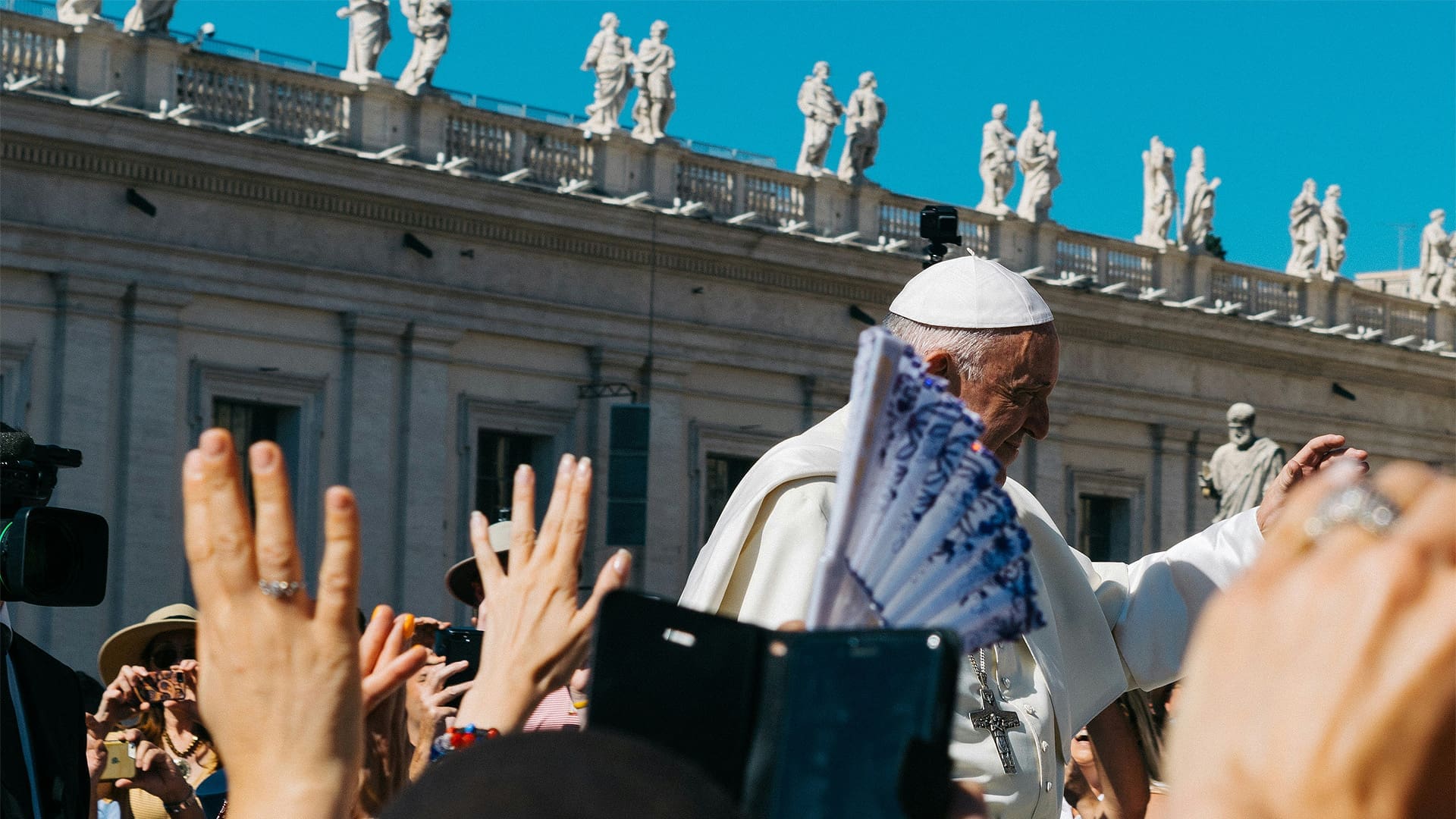W
With any large-scale leader governing a wide body politic, opinions of their tenure are going to vary, often depending on what the person with the opinion wants to see in the leader. So it should come as no surprise, following the death of Pope Francis on Easter Monday 2025, that opinions about Francis’s papacy span a wide spectrum. Yet one could be forgiven for discerning a kind of underlying consensus that Francis embraced what theologians call the spirit of aggiornamento—a desire to “update” the church for modern times: Headlines like “How Francis, Progressive Pope, Catalyzed the Right,” “Pope Francis Death Leaves a Legacy of Compassion for LGBTQ Christians” (later changed to “What Pope Francis Meant to LGBTQ Christians Like Me”), “Pope Francis’s Fight with the Catholic Right,” and “How Pope Francis Radically Reshaped the Catholic Church” have littered mainstream news outlets. Some of these articles seem to reflect the authors’ wishes for the church more than they do the reality of Francis’s tenure, but whatever their differences in emphasis or detail, their celebration of his aggiornamento is omnipresent.
Among conservatives and traditionalists, opinions have been more varied, ranging from those who identify Francis as the church’s worst nightmare to others who recognize that, even if Francis sowed many seeds of ambiguity, nothing fundamental to the church’s teaching and doctrine actually changed under his tenure.
The climate of our current political discourse pushes us toward clean, distinct camps, hermetically sealed worldviews that view any sign of ambiguity as a capitulation to the other side. What is distinctive about Catholic social teaching, however, is its inability—indeed its refusal—to neatly fit into any of our current “conservative” or “progressive” paradigms, especially in the US. But it is the very refusal of the church’s social teaching to neatly fit itself into either the progressive or the conservative narrative that is compelling to me. Neither of the current political camps is fully derived from a robust Christian theological vision of the world. Both are inadequate. The church’s teaching on issues like immigration, health care, and welfare rile the Right, while its teaching on abortion, same-sex marriage, and the ordination of women vex the Left. Any leader—especially the spiritual head of the world’s largest Christian body—that easily fit within either of these camps wouldn’t be leading according to the Christian faith in its fullness. That Francis never nicely snuggled up to the agenda of today’s Right or Left is a good indication that he wasn’t proceeding from the package-deal politics we have come to take for granted but from a more robust and holistic perspective.
It is the very refusal of the church’s social teaching to neatly fit itself into either the progressive or the conservative narrative that is compelling to me.
Health care is one of those spaces where the theoretical rubber hits the practical road. Though Protestant, I serve as an executive mission leader in Catholic health care. And like other Catholic health-care systems in the US, we are formally and canonically a ministry of the Catholic Church and seek to live out our health-care ministry in a way that brings to life the healing ministry of Jesus. In the US, we are guided by the Ethical and Religious Directives for Catholic Health Care Services, a document produced by the United States Conference of Catholic Bishops, which helps us navigate what we do and what we don’t do in order to faithfully carry out our ministry calling. Catholic health care is pervasive in the US: approximately one in five patients are seen at a Catholic facility, making Catholic health care as a whole a substantial influence on the spiritual and physical direction of our nation.
What was Pope Francis’s influence on Catholic health care? And what does it say about his pastorate? My estimation is that Pope Francis affected Catholic health care substantially—and at the same time very little. Let me explain.
Pope Francis’s emphasis on the poor and vulnerable reminded us of our core mission in Catholic health care. Our mission statement explicitly references the special attention we are called to give to those experiencing poverty. Pulling off health care in the US in general is challenging—more so in Catholic health care. In the heat of health care’s more mundane operations—budget meetings, competition with other industry players, and staff retention—we at times fail to give this emphasis on care for the poor the attention it merits. Sure, we treat whomever shows up at our door; but this is a passive approach, the meeting of a baseline requirement. What we need in order to fulfill our mission is a proactive approach that intentionally strategizes how to most efficiently and effectively care for people experiencing these hardships. Francis helped invigorate Catholic health care to eagerly follow Christ’s command to care for the least of these.
Moreover, Francis’s teaching on the poor and vulnerable helped expand Catholic health care’s ethical emphasis. While he did not neglect issues of abortion, sterilization, and euthanasia, Francis’s holistic approach to caring for the poor brought about a renewed concern for the larger social issues that our industry can neglect in the day-to-day grind: things like health-care disparities and various social determinants of health. Through encyclicals like Fratelli Tutti and Laudato Si’, the interconnection of the environment and health took on a renewed role in how we think about health care. These points of emphasis helped round out the desire of those in Catholic health care to live out the mission of Jesus’s healing in the world.
At the same time, little changed under Francis. During no time in his twelve-year tenure were the Ethical and Religious Directives revised toward a progressive agenda. While Francis’s description of the church as a “field hospital” resonated within many in Catholic health care, and while the metaphor rightly supported a pastoral approach to patient care, it did not result, as many seemed to assume it would, in revisiting traditional approaches to hot-button medical and organizational ethical decisions. Francis may have encouraged a compassionate stance toward those struggling with transgender dysphoria, for example, but such compassion did not entail the endorsement or practice of gender-transitioning medical procedures. And while he highlighted the vulnerability of the elderly and those suffering with terminal illness, such pastoral care for their suffering never extended to the embrace of physician-assisted suicide. Likewise, though Francis certainly placed the financial plight of the poor front and centre, he refused to countenance elective abortion as an option for the relief of those burdens.
What does all this say about the legacy of Pope Francis? Judging by what he said and what he actually did (and did not do), it might be accurate to say that he was progressive in style but conservative in substance. But whatever the case, the more we debate, as a contemporary body politic, whether his legacy is “conservative” or “progressive,” the more it strikes me that we are missing the point. What Francis was in fact aiming at was the truth. And given the wide range of church teachings and the many areas any given pope might emphasize, Francis did more to complement his “conservative” predecessors than to “update” them according to a “progressive” agenda. He had different points of emphasis from them, to be sure, and he did at times sow confusion that left us wondering the direction he would have us take. Some wrote it off as his pastoral approach, while others attributed it to his lesser theological acumen. But if my experience in Catholic health care is any indication, those points of emphasis were equally at home in the church. None of it translated into any so-called progressive revisions. In the end, Francis wasn’t progressive or conservative. He was Catholic.






